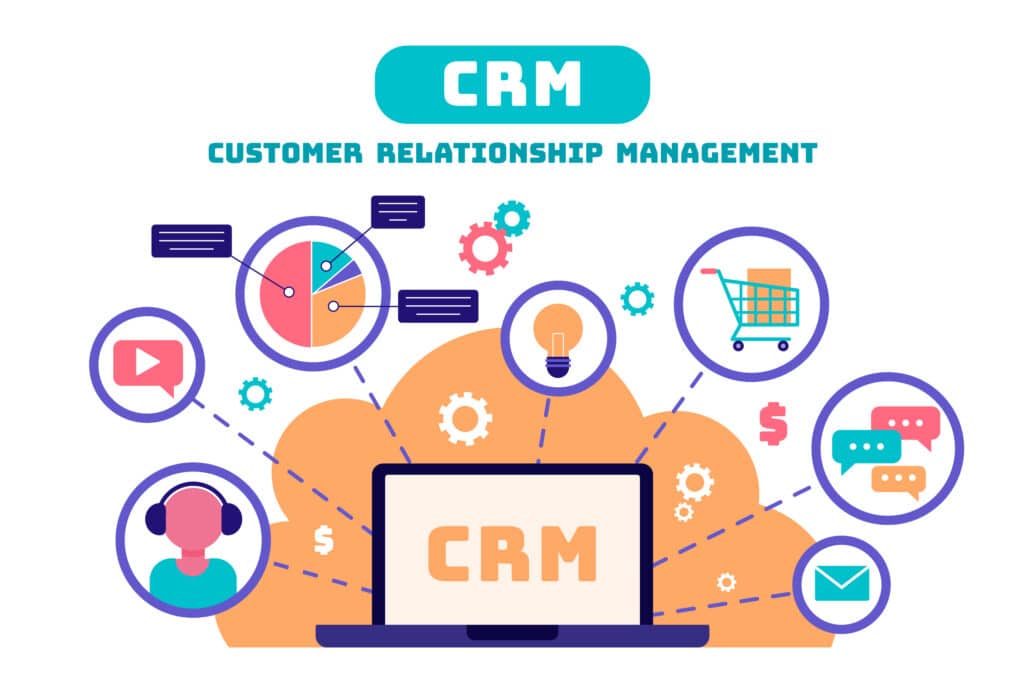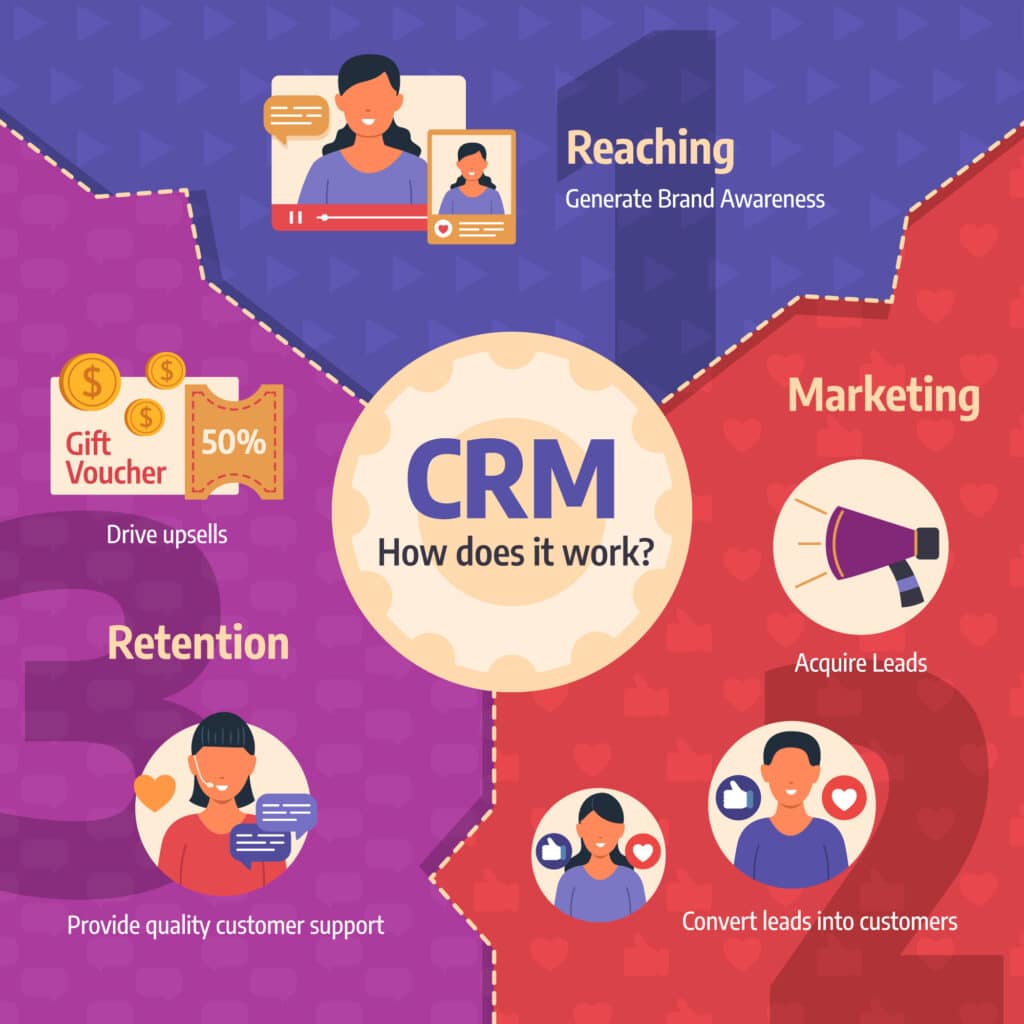
In today’s highly competitive business environment, companies are constantly seeking ways to enhance their sales and marketing strategies. CRM (Customer Relationship Management) has emerged as a powerful tool that enables businesses to effectively manage their interactions with customers, build strong relationships, and drive sales growth.
This article explores the definition, importance, and key features of CRM, as well as its benefits for sales and marketing growth. Additionally, we discuss best practices for successful CRM implementation.
Key Takeaways
- CRM software helps businesses improve sales productivity by providing a 360-degree view of customers and allowing sales teams to prioritize high-value opportunities.
- CRM enables personalized and timely communication with customers, leading to higher conversion rates and enhanced customer communication.
- CRM provides data and insights for accurate sales forecasting, allowing better resource allocation and planning.
- CRM helps track and visualize the sales pipeline, identifying bottlenecks and optimizing the sales process for improved sales growth.
Definition and Importance of CRM
CRM, short for Customer Relationship Management, is an indispensable business strategy for effectively managing customer interactions and fostering long-term relationships. In the digital age, CRM strategies have evolved to incorporate the integration of social media platforms.
This integration allows businesses to not only collect customer data from social media channels but also engage with customers in real-time. By leveraging social media platforms within CRM systems, businesses can gain valuable insights into customer preferences, behaviors, and sentiments. They can then use this information to personalize marketing messages, create targeted campaigns, and improve overall customer satisfaction.
Furthermore, CRM integration with social media platforms enables businesses to proactively address customer concerns and provide timely support, enhancing the overall customer experience.
Key Features of CRM
How can businesses enhance their sales and marketing efforts with the powerful features of CRM? By leveraging CRM integration and customization, businesses can unlock a range of benefits that will help them drive growth and achieve their goals.
Here are four key features of CRM that can make a significant impact on sales and marketing:
- CRM integration: Seamlessly connect your CRM system with other business tools and platforms to ensure a unified view of customer data and streamline workflows.
- CRM customization: Tailor your CRM system to meet your specific business needs and processes, allowing for greater control and efficiency in managing customer relationships.
- Contact management: Organize and centralize customer information in one place, making it easy to access and update customer data.
- Sales automation: Automate repetitive tasks and streamline sales activities, enabling your sales team to focus on high-value opportunities and close deals faster.
Benefits of CRM for Sales Growth

The implementation of a CRM system in business operations provides numerous benefits for sales growth. Two key benefits are improved sales productivity and enhanced customer communication.
CRM software provides a 360-degree view of customers, allowing sales teams to prioritize and focus on high-value opportunities. This increased visibility leads to better time management and more effective sales strategies, ultimately boosting sales productivity.
Additionally, CRM enables personalized and timely communication with customers. Sales teams can access customer information and preferences, allowing them to tailor their messages and offers. This personalized approach leads to higher conversion rates and improved customer satisfaction.
| Benefits | Explanation |
| Improved sales productivity | CRM provides a 360-degree view of customers, enabling sales teams to prioritize and focus on high-value opportunities. This leads to better time management and more effective sales strategies. |
| Enhanced customer communication | CRM allows personalized and timely communication with customers. Sales teams can access customer information and preferences, allowing them to tailor their messages and offers, resulting in higher conversion rates and improved customer satisfaction. |
CRM Software & Services- Is EngageBay worth considering? Read Here
Benefits of CRM for Marketing Growth

To drive marketing growth, businesses can leverage the benefits of CRM by implementing targeted marketing campaigns and optimizing lead generation efforts. Here are four ways CRM can enhance customer engagement and drive customer loyalty:
1. Segmentation and targeting
CRM allows businesses to segment their customer base based on preferences and behaviors. This enables targeted marketing campaigns that resonate with specific customer groups, increasing the likelihood of engagement and conversion.
2. Personalized marketing messages
CRM enables the customization of marketing messages based on customer data. By delivering relevant and personalized content, businesses can establish stronger connections with customers and drive higher response rates.
3. Marketing ROI measurement
CRM provides insights into the effectiveness of marketing campaigns. By tracking and analyzing campaign data, businesses can allocate resources more efficiently and optimize their marketing efforts.
4. Customer data analysis
CRM enables businesses to analyze customer data and identify trends, preferences, and opportunities. This allows for the development of new products or services that align with customer needs, fostering customer loyalty and driving growth.
Capsule CRM complete review- Read Here
Implementation and Best Practices for CRM
Implementing CRM requires careful planning and a thorough understanding of the business’s objectives and goals. It is essential to address CRM implementation challenges and ensure smooth integration with existing systems.
One of the key challenges is data migration, as transferring data from legacy systems to the new CRM can be complex and time-consuming.
Another challenge is user adoption, as employees may resist change or struggle to learn the new system. To overcome these challenges, it is crucial to involve key stakeholders and provide comprehensive training and support to users.
Additionally, selecting the right CRM software that aligns with the business needs is vital. Regularly monitoring and evaluating CRM performance will allow necessary adjustments to be made for optimal results.
Conclusion
In conclusion, Customer Relationship Management (CRM) is a vital tool for businesses to boost sales and marketing efforts. Its strategic approach allows for effective management of customer interactions, resulting in improved satisfaction, loyalty, and sales growth.
With features such as automation and sales forecasting, CRM enhances productivity and provides visibility into the sales pipeline. Additionally, CRM facilitates targeted marketing campaigns, improves lead generation, and supports personalized marketing messages and ROI measurement. Implementing these features & practices, one can definitely achieve sustainable growth.
Frequently Asked Questions (FAQ)
How Much Does CRM Software Typically Cost?
CRM software pricing varies depending on the vendor and the features included. It can range from a few hundred dollars per user per month for basic functionality to thousands of dollars per user per month for advanced features and customization options.
What Are Some Common Challenges Faced During CRM Implementation?
Some common challenges faced during CRM implementation include data migration and user adoption. Data migration requires careful planning to ensure the smooth transfer of data, while user adoption can be improved through comprehensive training and support.
Can CRM Software Integrate With Other Existing Business Systems?
CRM software offers various integration options with existing business systems, providing numerous benefits to organizations. Integration allows seamless data flow, improved efficiency, and better decision-making by leveraging the power of integrated systems.
Are There Any Industry-Specific CRM Solutions Available?
Yes, there are industry-specific CRM solutions available. These solutions offer customizable features tailored to specific industries, providing small businesses with targeted tools to optimize sales and marketing strategies for their unique needs.
What Security Measures Are in Place to Protect Customer Data Within a CRM System?
Data encryption and access control are essential security measures in CRM systems. Encryption ensures that customer data is protected during transmission and storage. Access control limits user access to sensitive information, reducing the risk of unauthorized access.







